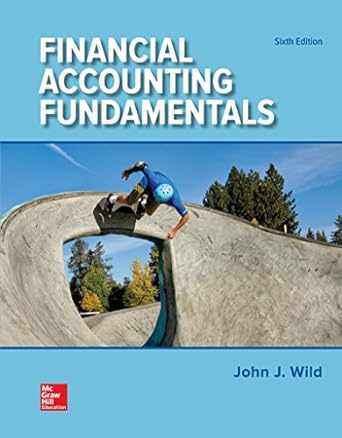Question
Facebook, Inc is in the Technology Service Sector and its industry is Internet Software/Services. According to stock-analysis-on.net, the WACC of Facebook based on their 10-k
Facebook, Inc is in the Technology Service Sector and its industry is Internet Software/Services. According to stock-analysis-on.net, the WACC of Facebook based on their 10-k filed in January 2020 is 12.74%. This is higher than the industry average of 10.62% (Damodaran, 2020) and means it is a higher risk to invest in Facebook than the industry average.
Currently, the pandemic COVID-19 is affecting all companies. For Facebook Inc, COVID-19 Is both a blessing and a curse. With people practicing social distancing around the world, Facebook Incs companies such as Facebook, WhatsApp, Instagram, and Messenger are all seeing surges in traffic. At the same time, Facebook relies on the paid advertising of companies of which a bulk of the companies are small businesses. With some companies losing money due to and others having to close due to COVID-19 it can be expected that Facebook may suffer losses in advertising revenue in the short term (Swartz, 2020).
The loss in revenue is not the only way COVID-19 is affecting Facebook, Inc. On March 15, 2020 the Federal Reserve cut interest rates to almost zero (.25%). The change in the stock market due to the lowering of interest rates will decrease the WACC of Facebook.
Some other risks Facebook has been facing in the past year (and earlier) deal with social media competition and regulatory risk. Facebook Incs strategy has been to buy any competition that they believe may draw users away from their apps. But they cannot buy all competition and as other apps become popular (example:TikTok) , Facebooks equity and therefore WACC will be affected.
The regulatory risk has become a hot topic when discussing Facebook. The misuse of Facebook during the U.S. elections has brought up the idea that Facebook may need to be regulated by the government. If the government does step in and begin to regulate Facebook it can also affect the WACC by causing an increase in the percentage.
Requirement: Provide feedback on the above post, including different examples related to the risks and their impacts on the above industry or company . Comment on the similarities and differences in the post above compared to the following post:
Nestle Company is a multinational food and drinks processing conglomerate corporation that is headquartered in Vevey, Vaud, in Switzerland. Notably, Nestle Company is the largest food company in the world, measured by revenues and other metrics, since 2014. This assignment seeks an analysis for the WACC of the chosen company. Therefore, the section presented below portrays WACC analysis of the Nestle Company in the food processing industry.
The weighted average cost of capital is the rate that a company is likely to pay on average to all its security pouches to finance its assets. The WACC is generally referred to as the organization's cost of capital. Prominently, it is verbalized by the external market and not by management, either debt or equity finances Nestle Company's assets. The WACC is referred as the average of all these sources of financing, each of which is weighted by its respective usage. Also, WACC is described as the weighted average rate of return an organization theoretically pays to its debt and equity promoters to recompense for the risks, they perceive by investing their capital. According to WACC for Nestle's S.A (2020), the WACC in Nestle Company is 7.0. therefore, this indicates that the company is a multinational operating under many competitors in the industry. With respect to how the Nestle Company benchmarks its WACC against its competitors, this source has identified the various companies as similar to Nestl S.A. since they operate in a related industry or sector. Also, the source has considered size, growth, and different financial metrics to narrow down the list of companies. Therefore, the file is provided in the source.
There are numerous risks that the Nestle Company faces in the current economic and political environment that most likely affect its WACC. The risk-free rate of return is stereotypically valued using the rate of return of short-term Treasury bills since most of these securities have steady values with absolute returns supported by the government. The market risk premium equals the market return less the risk-free rate and replicates the ratio of investment return attributed to stock market volatility. Additionally, a higher cost of capital for the company might also increase the risk that it will default. That would raise the default premium and further enhance the interest rate used for the WACC (Fernandez, 2019). Therefore, it is essential to note that when interest rates rise, the risk free-rate also increases, thus impacting the entire WACC of the Nestle Company in the food processing industry. Another significant risk that affects the Nestle Company's WACC is the overall tax rate from the government. In this case, it is noted that when the rate is high, there is an ultimate increase in the WACC (Kruschwitz & Lffler, 2020). On the other hand, a decrease in the tax rate leads to reduces the WACC in the Nestle Company. Therefore, economic and political environments play pivotal roles in determining the WACC of the Nestle Company in the food processing industry.
Step by Step Solution
There are 3 Steps involved in it
Step: 1

Get Instant Access to Expert-Tailored Solutions
See step-by-step solutions with expert insights and AI powered tools for academic success
Step: 2

Step: 3

Ace Your Homework with AI
Get the answers you need in no time with our AI-driven, step-by-step assistance
Get Started


